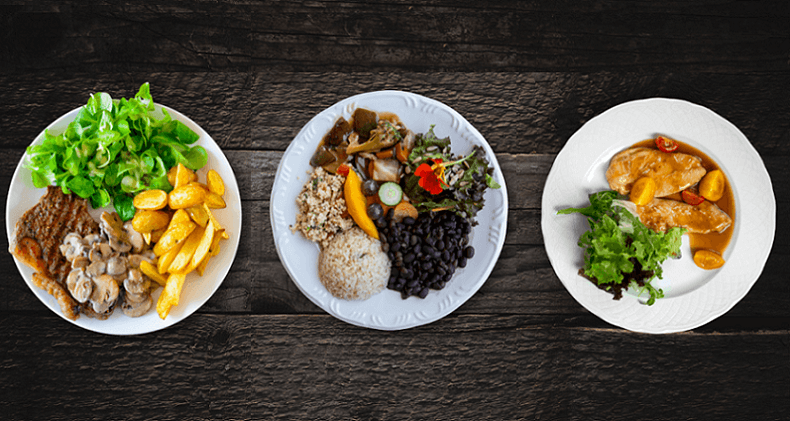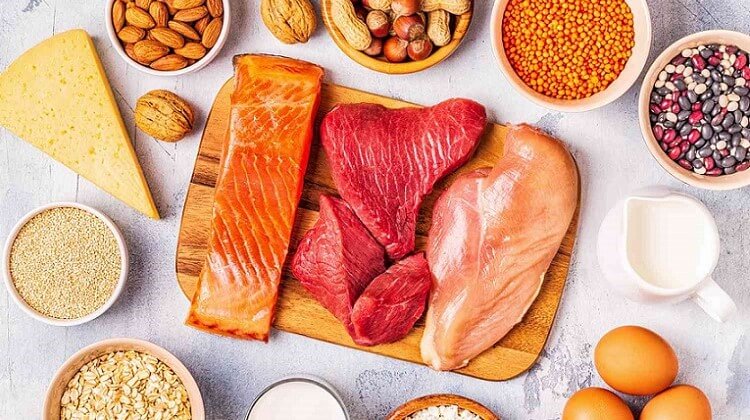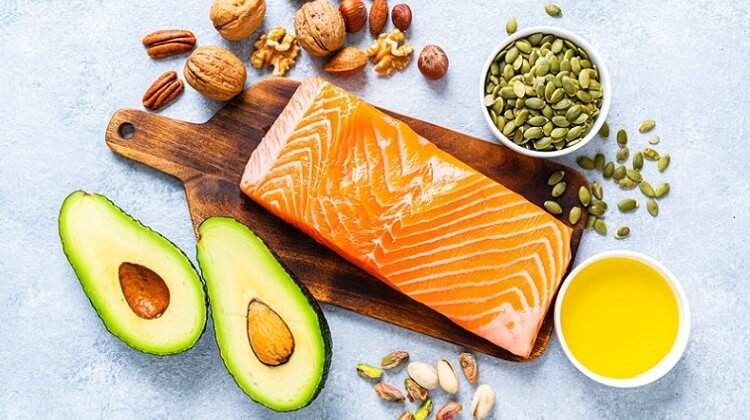Do you know that about a third of the American population are classified as obese?
This is the reality of American society today, but the good news is that many people are now making a concerted effort to lose excess weight and in effect extend their lifespan by avoiding those life-threatening health conditions associated with obesity, such as; diabetes, high blood pressure, stroke, and cardiac arrest.
As a result of this growing awareness, it is not unusual to find the average American either engaged in daily home workout sessions or hitting a local gym for some cardio, resistance and/or high-intensity interval training (HIIT) routine.
But out of these enthusiastic gym goers, there is a small, but fast-rising group of people that are not just interested in keeping fit and losing weight, but also in building skeletal muscles either in preparation for a competitive bodybuilding event or simply to feel good about themselves by looking pumped and ripped.
This group is made up of both inexperienced and experienced bodybuilders, but for the purpose of this article, we will focus on novice bodybuilders who want to build skeletal muscle mass fast.
Whether you are new to bodybuilding or not, it is common knowledge that having a well-structured training and dietary plan is absolutely necessary for you to succeed in your bulk training program.
But while eating clean is great for building muscle mass, it is important to equip yourself with the knowledge needed to optimize your nutrition for mass growth.
In this post, we aim to help keep you on the right path of success by revealing our ten (10) nutrition tips for building skeletal muscle fast.
10 Nutrition Tips for Building Skeletal Muscles Quickly
Here are ten (10) useful nutrition tips to help you build muscle mass quickly during your bulking program.
#1. Consider Maintaining a Calorie Surplus
You may have figured out your daily meal plan with a set amount of calorie intake, but if you intend to train hard by lifting weights and spending about 15 to 20 minutes daily on cardio, it would be a smart idea to maintain a calorie surplus to cater for your workload.
To be on the safe side, you can include an additional 300 calories by way of an extra meal to your average daily calorie count, especially on your scheduled training days.
This way, you will be sure of meeting your daily energy requirement while also shortening your recovery time on your rest days, as your damaged skeletal muscle tissues heal faster and promote muscle growth in the process.
#2. Keep Count
While maintaining a calorie surplus is great for building muscle mass, it is really important to keep count of your calorie intake in relation to actual muscle growth.
You could have a 14-day monitoring system where you check your body mass index (BMI), weight, and body fat percentage.
Increase or decrease your calorie count accordingly depending on your measurement parameters.
#3. 3 Meals a Day won’t Cut it!
You should know that if you are an active bodybuilder, eating just three clean meals daily in the form of breakfast, lunch, and dinner isn’t enough to promote muscle growth.
You need to eat as often as possible to consistently promote muscle repair and growth. Many bodybuilders eat between 5 to 8 meals daily in order to meet their bulking demands.
Some bodybuilders try to eat every 2 to 3 hours a day to avoid hunger pangs that result in overeating or binge eating to satisfy their hunger.
Add a mid-morning and mid-day snack to your daily dietary plan along with pre-workout and post-workout meals.
Supplements like whey protein and creatine can help to improve your satiety while at the same time providing you with the macronutrients necessary for improved energy and muscle growth.

#4. Avoid Unhealthy Food Choices
While it is important for you to eat as often as you can, and as many as eight (8) meals per day, you should ensure that you eat clean at all times.
This means avoiding unhealthy processed and/or refined foods like potato chips, French fries, hamburgers, and so on.
#5. Cook your Food the right Way
When cooking you should try as much as possible to avoid frying your foods, as this method of preparation is unhealthy.
Also, fried foods tend to increase both the fat content of your food and your total calorie count.
You can try broiling or grilling your protein-rich meat sources rather than frying them.
#6. Get your Protein from Whole-Food Sources
When choosing your protein food source, make sure to stick with whole-food sources, such as; steak, fish, eggs, and poultry.
When choosing steak, try to go for lean cuts like the round and loin, as these cuts of steak are known to possess the lowest amount of saturated fats.
Whenever you need to cook poultry meat like chicken and turkey, you can try to remove the skin before cooking and/or eating.
If you decide to go for fattier cuts of steak like ribeye or prime rib, you may excessively raise both your fat consumption and calorie count which is not what you want to do as high dietary fat could lead to weight gain.

#7. Rev up your Protein Consumption
You should make sure that your protein consumption is up to scratch. The protein you eat will provide your skeletal muscles with the amino acids needed to aid muscle repair and growth.
As an active bodybuilder, you are more than likely to experience a breakdown of your muscle tissue due to the sheer intensity of your workouts.
You will therefore need to have rest days in order for your muscle tissues to repair. It is during this recovery period that the amino acids in your muscle tissues act to help repair your damaged muscle quickly while at the same time stimulating a growth in muscle mass.
If you are unsure of what quantity of protein to consume on a day-to-day basis, you can simply consume in grams what you weigh in pounds (lbs).
For example, if you weigh 250 pounds (Ib), then your total daily protein consumption should be 250 grams. So if you have five meals daily, then you should consume about 50 grams of protein for each meal.
#8. Don’t Cave-in to Sugar!
Consuming foods and drinks with refined sugar can be bad for your overall health. You should try not to cave-in to your sugar cravings.
If you have a need for a snack, try a protein-bar or have a drink of whey protein to quench your cravings.
#9. Have a Good Balance of Saturated Fats
Get your saturated fats from protein-rich animal sources like eggs, meat, and dairy products. Saturated fats help with the production of hormones and fat-soluble vitamins like vitamins A, D, E and K.
If your saturated fat consumption is not balanced, you could greatly lower your endogenous testosterone production which would ultimately hinder your quest to build muscle mass.
Along with saturated fats, you should also include dietary fats from food sources like nuts, fatty fish, seeds, canola and olive oil.

#10. Don’t Compromise Your Daily Sleep
Eating right and training hard is not enough to promote quick growth in your muscle mass. You need to also spend time resting and recovering from your hectic training sessions.
It is during your rest that the amino acids in your muscle tissues act to repair damaged muscles and build larger muscle mass in the process.
It is therefore important to get good quality sleep of about 8 hours daily in order to help rejuvenate the cells and tissues of your skeletal muscles and promote quick growth.
Conclusion
To build muscle mass you have to maintain a daily routine of good clean eating, cardio, and weight training. However, in observing your daily nutrition plan, you should heed the ten (10) tips revealed in this post in order to optimize your bulking and performance gains.
Maintain a calorie surplus if you are highly active in the gym while also keeping count of how your body reacts to the calorie surplus and adjusting your daily calorie count accordingly.
Make sure to spread your daily calorie count across 5 to 8 meals and prepare your foods properly while avoiding fried, processed, refined, and sugary foods.
Remember that protein is needed for muscle growth, so make sure that your protein consumption is high, but rely only on animal and whole-food sources for your daily protein intake.
Finally, try to sleep as much as possible to recover properly from the intensity of your training sessions and to allow your damaged muscles to heal and grow larger than before.
If you need more information on how nutrition can help boost your muscle growth, feel free to contact our in-house IFBB PRO today.


